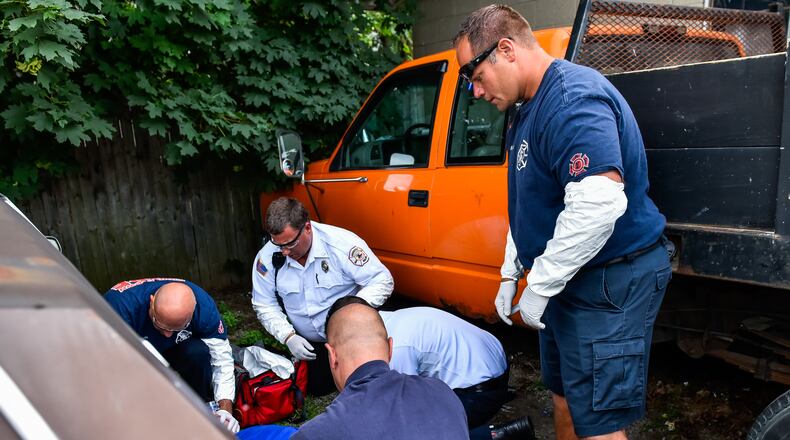RELATED: Butler County coroner: Overdose deaths at crisis levels
None of those levy funds can be spent on addiction services. Scott Rasmus, executive director of the MHARS board said in his budget submission if voters approve the .7-mill levy in May it would replace the existing 0.5-mill levy and allow them to use some of the new funding to battle the opiate epidemic.
“Addiction recovery services needs to be supported by local Butler County citizens,” he wrote. “The opiate epidemic crosses all demographics of Butler County and most likely many of us know someone that the epidemic has touched.”
Through September there have been 177 overdose deaths, up from 147 during the same time period last year. Butler County Coroner Dr. Lisa Mannix is also on the commissioners’ hearing agenda and her submission underscores how bad the epidemic has become.
“In 2017 we are on pace for 274 total drug overdoses, the overwhelming number of which are fentanyl/heroin/opioid related, a 43 percent increase over 2016,” she wrote. “In 2012, there were 30 heroin related overdose deaths… Further evidence of the magnitude of this crisis, the state of Ohio recently names accidental deaths (mostly related to drug overdoses) as the third leading killer in the state.”
The commissioners have the final say on whether the levy question will make it to the ballot and at least at this early juncture, it appears it will be a hard sell. Commissioner Don Dixon said he fully understands the epidemic issue but he isn’t sure tax dollars are the answer.
“It’ll be a hard sell for me, but we’ll see, I’m willing to listen…,” he said. “Increasing taxes just goes against everything I believe in.”
Commissioner T.C. Rogers agreed raising taxes is not something he takes lightly, but he said a successful effort to curb the epidemic could ease budgets in other areas of the county.
“If you’ve got a program that works, then there should be somewhat of cost savings in some of the other areas the opiate problem effects, which should offset that cost,” he said, naming the jail, Children Services and the coroner’s office as some departments that might benefit if the MHARS board is successful in the opiate epidemic battle.
The MHARS board approved a $3.6 million opiate business plan a year-and-a-half ago to tackle the problem. Rasmus said unfortunately attempts to get outside funding haven’t been too successful so far. They have reallocated $600,000 in state funding to the plan but that’s it.
“We tried to seek other funding sources and we’ve exhausted them at this point,” he said, hence the levy request.
About the Author
